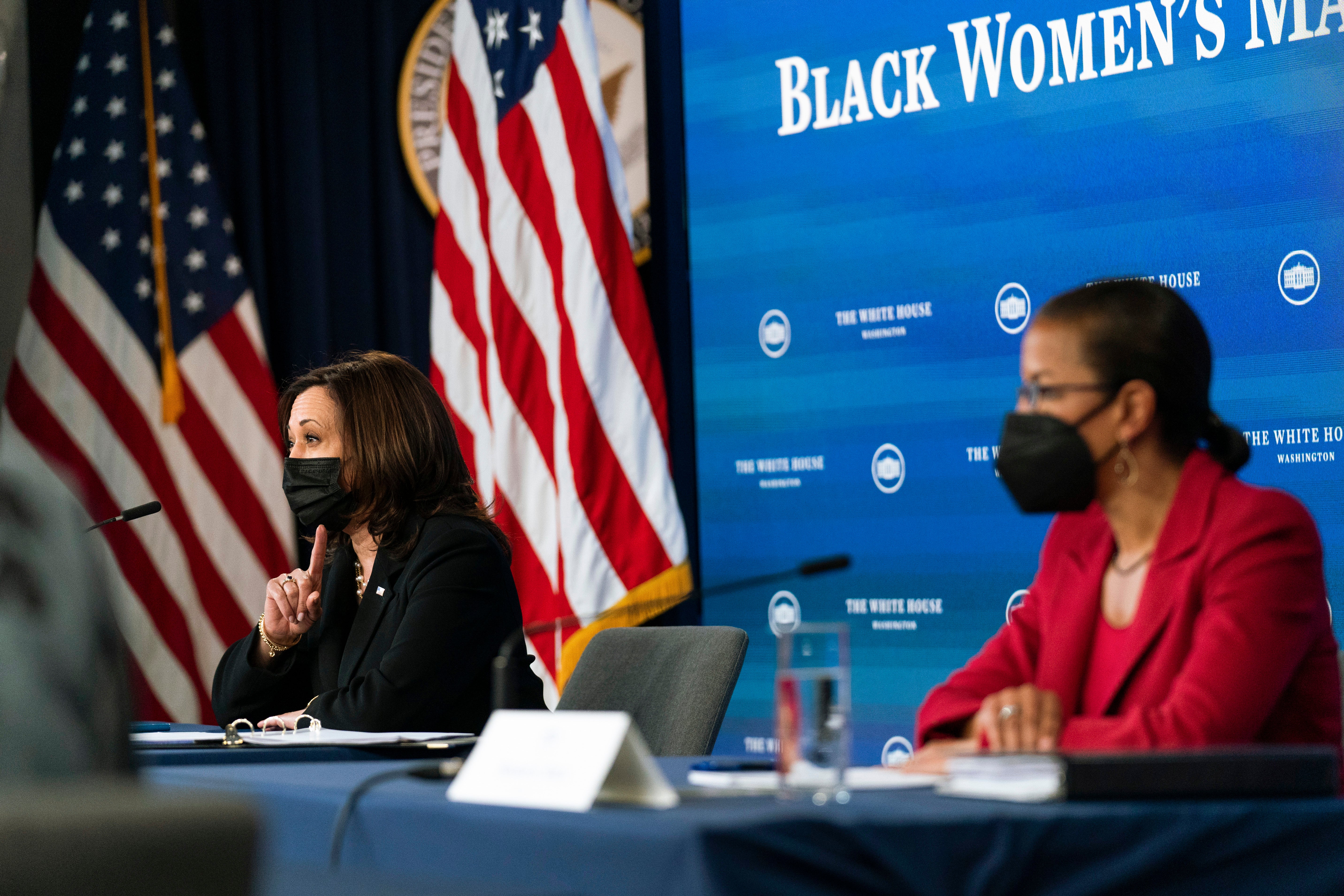Harris highlights pregnancy difficulties facing Black women
Vice President Kamala Harris has marked Black Maternal Health Week by leading a White House discussion of the issues that make African American women two to three times more likely than other women to die because of childbirth

Your support helps us to tell the story
From reproductive rights to climate change to Big Tech, The Independent is on the ground when the story is developing. Whether it's investigating the financials of Elon Musk's pro-Trump PAC or producing our latest documentary, 'The A Word', which shines a light on the American women fighting for reproductive rights, we know how important it is to parse out the facts from the messaging.
At such a critical moment in US history, we need reporters on the ground. Your donation allows us to keep sending journalists to speak to both sides of the story.
The Independent is trusted by Americans across the entire political spectrum. And unlike many other quality news outlets, we choose not to lock Americans out of our reporting and analysis with paywalls. We believe quality journalism should be available to everyone, paid for by those who can afford it.
Your support makes all the difference.One Black mother said she nearly died after her son was born following an earlier miscarriage and a stillbirth. Another Black mother said that she wasn't told about the dangers of her particular pregnancy complication in women like herself and that it led to the loss of her baby just before her delivery date. A third Black woman who is caring for her grandson spoke through her tears about unexpectedly losing her daughter after the baby was born.
“We didn’t see this coming," Donna Trim-Stewart, the grandmother, said at a White House-sponsored discussion on the health of Black mothers. “It's the unexpected way we lost her.”
To mark Black Maternal Health Week, Vice President Kamala Harris led a discussion Tuesday of the issues that make African American women two to three times more likely than other women to die because of childbirth. Harris noted that Native American women are 2.3 times more likely to die from pregnancy-related causes than white women.
“Race should never determine health outcomes — and pregnancy and childbirth should be safe for all,” President Joe Biden tweeted. “But for too many Black women, safety and equity have been denied. This Black Maternal Health Week, our Administration is taking action to change that.”
Harris, who is Black, said that throughout her career she's heard stories about women whose complaints about pain or postpartum depression were ignored or dismissed. She blamed systemic inequities and implicit bias and said the consequences are "very real.”
“Black women deserve to be heard. Their voices deserve to be respected,” the vice president said. “And like all people, they must be treated with dignity.”
Before the discussion, the administration announced a series of steps to address U.S. maternal mortality rates that are among the highest in developed countries. Biden also issued a proclamation calling attention to the state of Black maternal health.
The budget proposal Biden released last week asks Congress for $200 million for implicit bias training for health care providers and other programs; more funding for the Department of Health and Human Services' civil rights office; and more spending on reproductive and preventive health services.
HHS also approved a Medicaid waiver permitting Illinois to expand postpartum coverage for Medicaid-eligible women from 60 days to up to 12 months. The administration is also taking steps to improve access to and the continuity of maternal care in rural communities.
Erica McAfee, founder of the podcast “Sisters in Loss,” described the harrowing birth of her son that followed the earlier losses of another son at 39 weeks and a daughter at 18 weeks.
McAfee said that her placenta had completely separated from her uterus and that she lost so much blood that she needed eight blood transfusions and a partial hysterectomy at age 28. Her family was summoned after she was put on life support. Her son, deprived of oxygen because of the placenta abruption, was resuscitated at birth and later diagnosed with cerebral palsy.
She started the podcast in 2017 to share stories like hers and said women feel relief and comfort when they talk about their experiences.
“The stigma and shame that comes with sharing loss stories prevent Black women from achieving the healing they need to thrive in their new normal,” McAfee said.